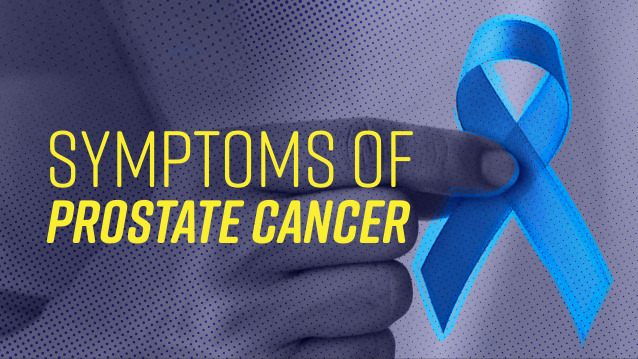Timely diagnosis of prostate cancer can save lives. Right treatment at right time minimizes the risk for future complications as well as allows doctors to select best therapy/procedure for complete cure.
Prostate cancer
Prostate cancer is the second most common form of cancer (first being skin cancer), but the disease can be fully cured if timely diagnosis is sought followed by right treatment at right time. A clear understanding of the disease symptoms and its management helps a lot to the patient with prostate cancer. Having a prior knowledge about expected disease outcomes and possible treatment option in advance makes the cure procedure easier for both the patient and the doctor.
What to know about prostate cancer?
Several factors about prostate cancer such as symptoms, risk factors, treatment options, diagnosis and post-treatment management of the disease are important things to know for better recovery. Based on these factors your doctors will suggest proper treatment regime for you.
Prostate cancer symptoms

Prostate cancer shows little or no symptoms of the disease at early stage, but advanced stage of it may have some signs including:
- Blood in semen and urine
- Frequent urination and no control
- Erectile dysfunction and troubled ejaculation
- Difficulty, pain or burning sensation while urinating
- Problem in sitting, caused by enlarged prostate
- Swelling in pelvic region, legs or feet
- Persistent pain in bones
- Numbness in feet, legs or hips
- Swelling in pelvic region, legs or feet
- Sudden weight loss
- Change in bowel habits
Prostate cancer diagnosis

Screening tests
The primary screening for prostate cancer includes two tests:
- PSA test: Prostate-specific antigen or PSA test is done to detect amount of PSA, a substance secreted in prostate gland, in blood sample. Higher than normal amount could indicate issue with prostate.
- DRE test: Digital rectal exam or DRE test refers to physical examination of rectum area for any abnormalities in the prostate gland.
Diagnosis
In case the screening tests find some abnormality further tests are done to confirm the prostate cancer, which may include:
- MRI is done to get detailed pictures of prostate and decide for biopsy.
- Ultrasound can reveal images of prostate gland and any sins of cancer.
- Biopsy is done to find cancerous cells in the gland.
Prostate cancer treatment
Prostate cancer treatment can be done with different procedures and therapy or combination of two therapies, depending on the cancer stage, spread of tumor, size of tumor, and site of cancer.
- Chemotherapy: Targeted medicines are administered to the patient for killing the infected cells.
- Hormone Therapy: In this therapy anti-androgens and LH-RH are given to restrict the spread and growth of testosterone.
- Radiation Therapy: This therapy uses high-energy beams, internally or externally, to eliminate cancerous cells.
- Cryotherapy: This is a process of restricted freezing and thawing of the gland alternatively to kill infected tissues.
- Robot-Assisted Prostatectomy: It is a surgical procedure to remove the prostate gland and nearby tissues by using a robotic arm. This method ensures minimal side effects and convenience.
- Radical Prostatectomy: This is open surgical process involving removal of the prostate gland as well as adjacent cells. This procedure is recommended to patients whose cancer is contained only to the prostate gland.
- Immunotherapy: The therapy, also known as biological therapy, involves extraction of patient’s tissues from prostate gland and modified to inject back to counter cancerous cells.
- HIFU: High-Intensity Focused Ultrasound or HIFU involved usage of heat radiation from sound waves to kill targeted tissues.
- Radiofrequency Ablation: This is a novel procedure for eliminating the infected cells by using high-energy radio waves precisely, in turn minimizing the side effects.
Prostate cancer awareness
Prostate cancer cases have been on the rise in past few decades. It is also second major reason for death in male population. Moreover, the symptoms and signs of early stage prostate cancer are not easily detected in males aged above 55 years, which makes it difficult to cure in time. Studies suggest that prostate cancer awareness is typically low among general public, which needs to be improved. Some facts about prostate cancer awareness are:
- Around 40% people know that above the age of 50 years or more enhances the risk of disease among them.
- More than 80% people at increased risk of prostate cancer are not aware that they are at more risk.
- Over 50% of people don’t know that a family history of prostate cancer can make them more vulnerable to the disease.
- Only 5% individuals know that darker skin may enhance the risk of prostate cancer.
Can a prostate cancer patient survive?
Most of the patients diagnosed with prostate cancer survive, if the disease is detected early and right kind of therapy/procedure is followed. The survival rate depends on age and overall health of the patient, cancer stage, and active monitoring of the disease. Post-diagnosis, the five year survival rate for prostate cancer is around 100% in men with regional or local prostate cancer, while more that 85% people can survive upto 10 years after receiving the treatment.
How timely treatment can prevent future complications?
Complications after prostate cancer treatment include sexual, gastrointestinal and urinary issues. Advancement in radiation, surgical and other therapies coupled with improved detection techniques for post treatment complications have given an edge for better survival and healthy living of the patients. Timely intervention for prostate cancer treatment can prevent bone density issues, anemia, heart problems, GI tract issues, insulin resistance etc.
Prostate cancer treatment in India
Prostate cancer treatment cost in India depends upon several factors such as treatment procedure, stage of the disease and size of tumor. Doctors will thoroughly evaluate the patient’s condition and recommend best possible treatment option to the patient. The cancer evaluation cost begins from USD 500. After preliminary diagnosis, the cancer specialist will assess, whether medication therapy will suffice or a surgical intervention is needed to cure the disease. In India, cancer surgery cost start from USD 4200, which is now very safe by using cutting-edge technology and equipment. Surgery can also be combined with other therapies such as immunotherapy, radiotherapy and chemotherapy for best results; though, surgery is not suitable for all prostate cancer patients. Chemotherapy price in India begins from USD 400 per cycle.
MedicoExperts would provide you the ideal solution and end to end assistance for all your healthcare needs in India.
For more information, please email us your medical query with reports at [email protected] or Call/WhatsApp us at +919769516280




